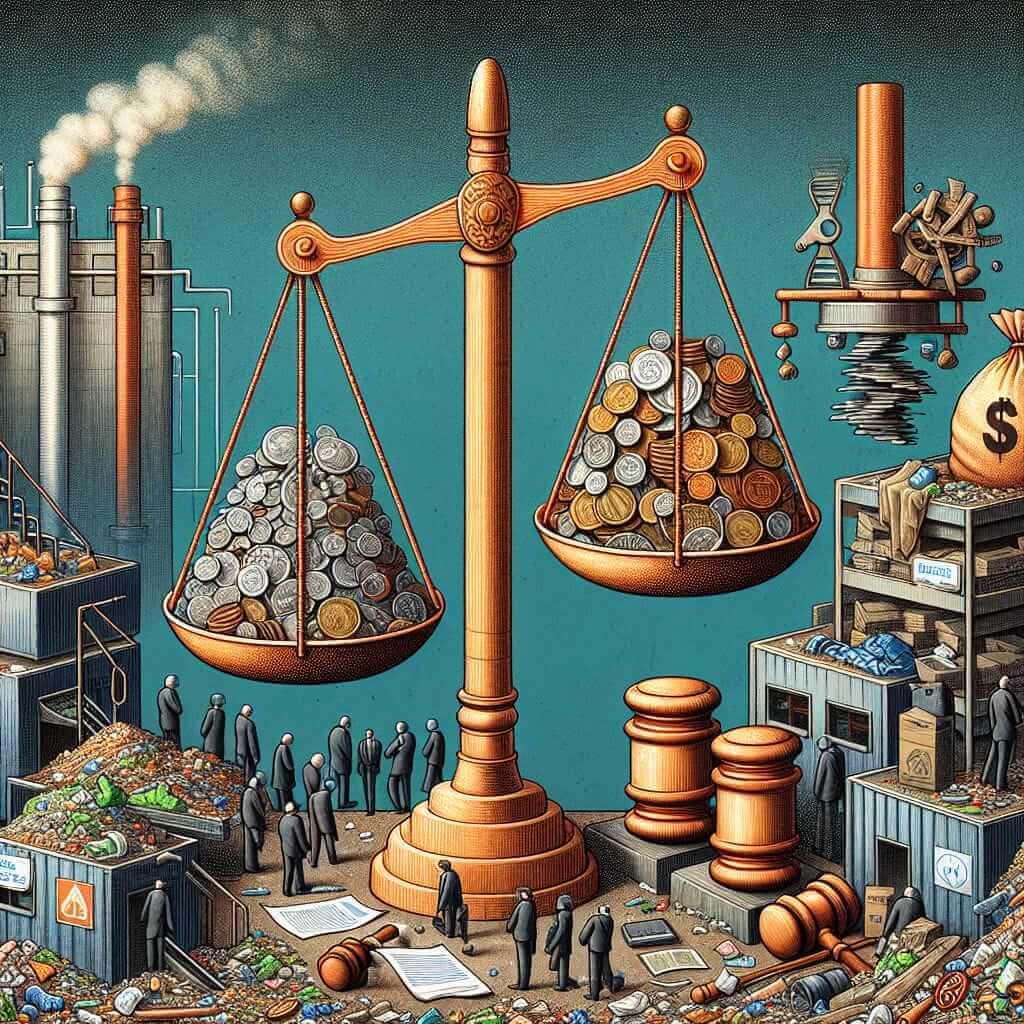The Reading section of the IELTS exam is designed to assess a candidate’s ability to understand and interpret written text. The passages in this part of the exam cover a range of subjects, including the environment, technology, education, and more. Given the increasing relevance of environmental issues, topics such as waste management are frequent. This article aims to provide an IELTS Reading practice passage on “What are the challenges of managing global waste disposal?” to help you get accustomed to the format and practice effectively.
Reading Passage
Challenges of Managing Global Waste Disposal
Waste management is a critical issue that affects economies and the environment on a global scale. The complexities involved in managing global waste disposal stem from various factors, including economic disparities, technological limitations, and regulatory differences between countries. This passage will discuss these challenges in detail.
One of the primary challenges in managing global waste disposal is economic disparity among nations. Developed countries typically have more resources to invest in waste management infrastructure, whereas developing nations often lack the necessary funding and technology. This discrepancy leads to inefficient waste management practices in many parts of the world, resulting in environmental degradation and public health issues. For instance, electronic waste, or e-waste, is frequently shipped from developed countries to developing nations, where it is improperly processed and results in significant environmental damage.
Technological limitations also pose significant challenges. While some advanced technologies exist for recycling and waste processing, they are often expensive and not universally accessible. Consequently, many countries rely on outdated methods such as landfilling and incineration, which can have severe environmental impacts. For example, landfills can leak toxic substances into the soil and groundwater, while incineration can release harmful pollutants into the air.
Regulatory differences further complicate global waste management. Countries have varied regulations regarding waste disposal, recycling, and environmental protection, leading to inconsistencies in how waste is managed globally. These differences make it challenging to create a standardized approach to waste management, resulting in some countries becoming dumping grounds for waste from others. The Basel Convention, an international treaty, aims to reduce the movement of hazardous waste between nations, but its implementation has been inconsistent.
Another challenge is the lack of public awareness and education about effective waste management practices. Even in countries with robust waste management systems, public participation and adherence to recycling protocols are often lacking. This issue is exacerbated in developing nations, where public awareness campaigns are scarce, and the importance of proper waste disposal is not widely understood.
To address these challenges, international cooperation and comprehensive policies are essential. Investment in waste management infrastructure, development of affordable technologies, and harmonization of regulations can contribute significantly to better waste management practices globally. Additionally, raising public awareness through education and mass media can foster greater participation in waste disposal and recycling programs.
In conclusion, managing global waste disposal is a multifaceted issue that requires concerted efforts from governments, international organizations, and the public. Addressing economic, technological, regulatory, and educational challenges is crucial to developing a sustainable solution for global waste management.
Practice Questions
Multiple Choice
-
What is one of the primary challenges in managing global waste disposal?
- A) Lack of interest from developed countries
- B) Economic disparity among nations
- C) Overabundance of recycling facilities
- D) Excessive government regulations
-
How do technological limitations affect global waste management?
- A) Advanced technologies are often expensive
- B) There are too many advanced technologies available
- C) All countries have access to the latest technologies
- D) Technological limitations have no impact
Identifying Information (True/False/Not Given)
-
Developed countries generally have outdated waste management systems.
- A) True
- B) False
- C) Not Given
-
The Basel Convention aims to increase the movement of hazardous waste between countries.
- A) True
- B) False
- C) Not Given
Sentence Completion
-
Landfills can leak __ into the soil and groundwater.
-
Public awareness campaigns about waste management are __ in developing nations.
Matching Headings
Match the correct heading to each paragraph:
- i) Regulatory Challenges
- ii) Economic Disparities
- iii) Lack of Public Awareness
- iv) Technological Limitations
Answer Key
- B
- A
- B
- B
- toxic substances
- scarce
Matching Headings
- ii) Economic Disparities
- iv) Technological Limitations
- i) Regulatory Challenges
- iii) Lack of Public Awareness
Common Mistakes
- Misinterpreting the main idea of a paragraph.
- Ignoring qualifiers such as “often,” “generally,” and “frequently.”
- Skimming too quickly and missing essential details.
Vocabulary
- Disparity (n) [dɪˈspærɪti]: A great difference.
- Degradation (n) [ˌdeɡ.rəˈdeɪ.ʃən]: The condition or process of degrading or being degraded.
- Incineration (n) [ɪnˌsɪn.əˈreɪ.ʃən]: The destruction of something, especially waste material, by burning.
Grammar Points
- Relative Clauses: Used for adding extra information to a sentence. Example: “Countries that lack the necessary resources struggle to implement effective waste management.”
- Passive Voice: Often used in academic writing. Example: “Waste is frequently shipped from developed countries to developing nations.”
Conclusion
To achieve a high score in the IELTS Reading section, it is essential to practice with passages on various topics, including global issues like waste management. Understanding the complexities and challenges of such topics will help you efficiently tackle the questions and improve your reading comprehension skills.
 Challenges of Managing Global Waste Disposal
Challenges of Managing Global Waste Disposal
By addressing frequent mistakes, expanding your vocabulary, and understanding complex grammatical structures, you can enhance your performance in the IELTS Reading section. Consistent practice with authentic reading materials and continuous learning are key to success.


